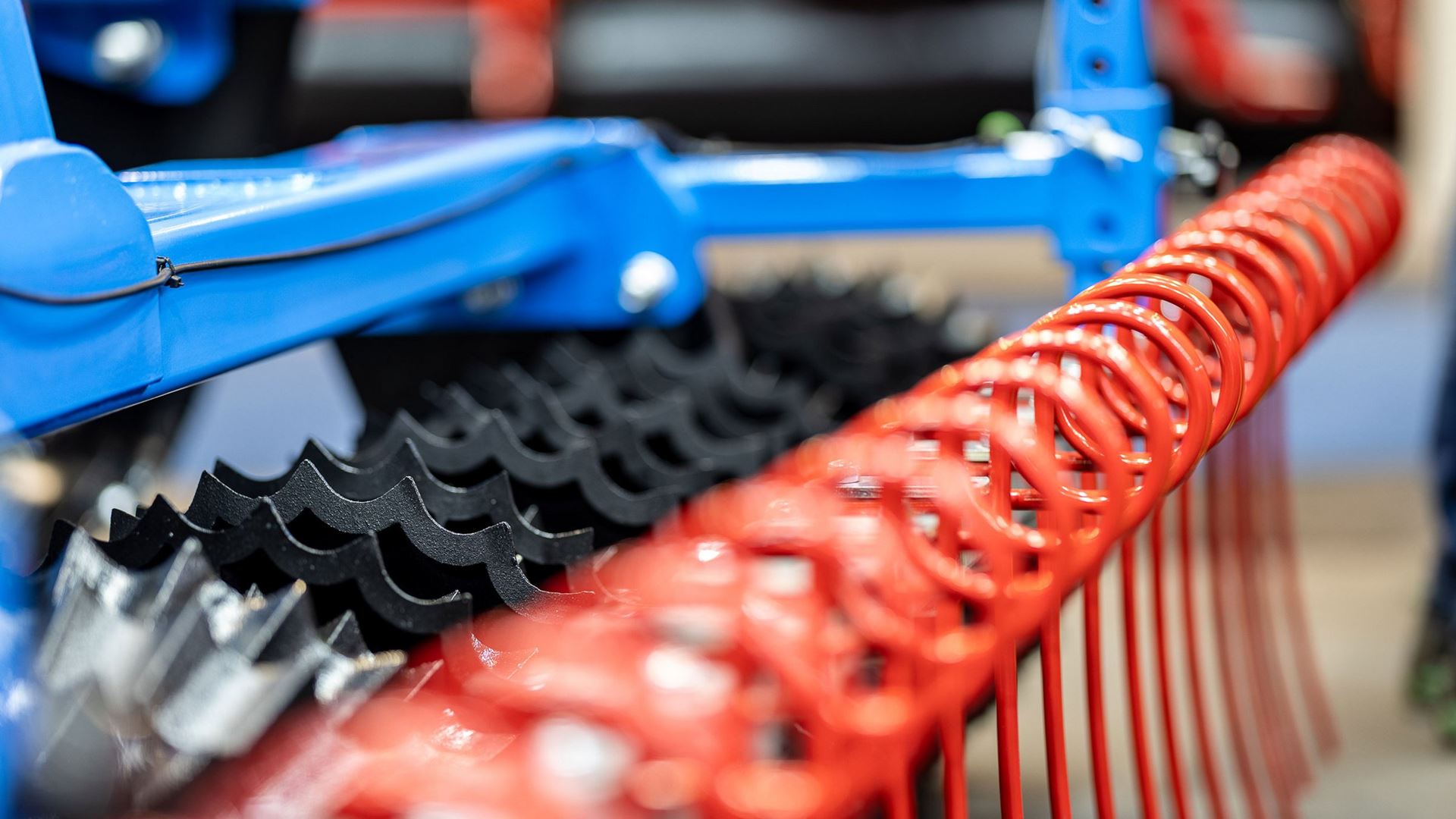November 9–15, 2025 in Hanover, Germany – Guiding Theme: “Touch Smart Efficiency” – Seizing opportunities of digitalization – Agritechnica, the world’s leading trade fair for agricultural machinery, is the platform for innovative approaches to climate change adaptation – www.agritechnica.com
The effects of global warming are impacting agriculture worldwide, influencing crop yields and the economic success of farms. At Agritechnica 2025 taking place from November 9 to 15 in Hanover, Germany, exhibitors from around the globe will showcase how technical solutions can address the challenges of climate change, including innovations in digitalization and smart farming. The international technical program, featuring contributions on soil cultivation and water management, will also play a key role in transferring knowledge into practice. The expert article, “Climate Change: Readjusting the Levers,” provides a preliminary analysis of key aspects within this topic area.
Agriculture is one of the first sectors to feel the impact of climate change. Rising temperatures, heavy rainfall, prolonged droughts, and storms are already having a direct effect on agricultural production, crop yields and quality. These challenges demand a high degree of flexibility from farmers in how they manage their land and resources.
As global temperatures rise, extreme weather events are becoming more frequent — making land management increasingly challenging. Heatwaves, droughts, hailstorms, heavy rainfall, and flooding are driving up the risk of crop damage and making harvest outcomes more unpredictable. The future of agriculture will largely depend on the actions farm managers undertake and the solutions offered by partners such as agricultural machinery manufacturers and plant breeders.
Various levers need to be adjusted for agriculture to adapt to climate change. Numerous farms have already adapted to the changing climate conditions and many are considering appropriate measures. Due to regional differences, there will not be a general blueprint for solutions. Suitable adaptation strategies must be developed in a differentiated manner. The possible toolbox is varied, ranging from tillage and other management measures to extended crop rotations and plant breeding.
Focus on water in soil cultivation
Sustainable use of water, combined with forward-looking water management, is a key factor in successful climate adaptation. Soil cultivation is a good starting point here. No-tillage or minimal tillage results in positive changes to soil properties, which can have a major impact on increasing soil moisture. However, not all soils are suitable for such measures.
In this context, regenerative arable farming is also coming into focus, where permanent soil cover is one of the cultivation measures in addition to reduced tillage. Both are intended to increase the water retention capacity of the soil by improving soil quality. Covering the soil as much as possible with cover and catch crops, undersowing or mulching can also prevent or mitigate erosion caused by heavy rainfall events.
Irrigation not only concerns technical aspects, but also legal ones, such as the issue of water abstraction. A water permit is required for agricultural irrigation. In past dry years, however, allocated water quotas have already been exceeded locally. This further underlines the importance of technologies with high water use efficiency.
Single grain sowing also for cereals and rapeseed
A vital plant can better withstand drought stress. If there are fewer plants per square meter, water is also saved. This also makes precision sowing an interesting option for cereals and rapeseed. The plants have less competition in an optimal location and can develop their root system better. Both of these factors make the plants more resilient to damage caused by drought.
Agritechnica 2025: Solutions for climate adaptation
Agriculture faces the challenge of adapting to changing conditions in order to become and remain resilient. How can farms become climate-resilient and prepare themselves against the consequences of climate change? Agritechnica 2025 offers the ideal platform to discover innovative technology and new solutions from industry, research and practice to help counteract the effects of climate change.
Agritechnica 2025 is the place for farmers to find technical solutions for extended crop rotations as well as new approaches to soil cultivation. The DLG spotlight “Soil Health” in Hall 24, organized together with the Society for Conservation Tillage (GKB) will present practical approaches for farmers.
About DLG
With more than 31,000 farm and industry members, DLG is a politically independent and non-profit organisation. DLG draws on an international network of some 3,000 food and agricultural experts. DLG operates with subsidiaries in 10 countries and also organizes over 30 regional agricultural and livestock exhibitions worldwide. DLG’s leading international exhibitions, EuroTier for livestock farming and Agritechnica for agricultural machinery, which are held every two years in Hanover, Germany, provide international impetus for the local trade fairs. Headquartered in Frankfurt, Germany, DLG conducts practical trials and tests to keep its members informed of the latest developments. DLG’s sites include DLG's International Crop Production Centre, a 600-hectare test site in Bernburg-Strenzfeld, Germany and the DLG Test Centre, Europe's largest agricultural machinery test centre for Technology and Farm Inputs, located in Gross-Umstadt, Germany. DLG bridges the gap between theory and practice, as evidenced by more than 40 working groups of farmers, academics, agricultural equipment companies and organiations that continually compare advances in knowledge in specific areas such as irrigation and precision farming.
www.dlg.org
Agritechnica 2025: Climate Change: readjusting the levers
Release Date: 14 May 2025

